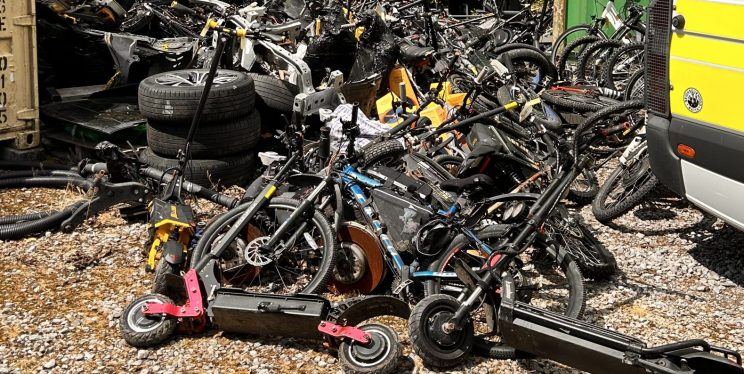Avon and Somerset Police and Crime Commissioner Launches National E Scooter Safety Advisory Group

A National E Scooter Safety Advisory Group has been convened by the Police and Crime Commissioner (PCC) for Avon and Somerset, Mark Shelford.
The group will support national partnership work currently in progress to address safety concerns and challenges following the rapid rise of the use of e scooters across the UK.
Bristol, Bath and South Gloucestershire is the location of the biggest trial of public hire e scooters in the UK. Currently, there is no legislation governing the use of e scooters and the group will focus on lobbying central government and increasing public awareness of issues surrounding the use of both public hire and privately owned e scooters.
The group includes representatives from policing, fire and rescue, trading standards, government departments, academic research bodies and scooter hire companies.
This partnership network will review current advice, guidelines, policing policy and road use of legitimate hire scooters alongside the rise in illegal use of private scooters in order to:
- Consider legislation and enforcement to safeguard scooter users, pedestrians and other road users as well as the need to identify scooter riders in the case of an accident or where criminality has occurred involving an e scooter
- Lobby for training required for scooter users on road safety as well as for other vehicle drivers now sharing roads with e scooters
- Raise public awareness to advise on a range of issues including safe operation and road use of scooters; risks posed by the lithium batteries and charging equipment used to power e scooters and provision and guidance on safety equipment such as helmets and protective clothing for scooter riders.
The group will review published research into e scooters and the wider emerging micro mobility sector and make recommendations which will include viewpoints from the group’s multidisciplinary members.
PCC Shelford, chair of the National E Scooter Safety Advisory Group, said:
“The issues we face with the use of e scooters are many and varied. We know the use of scooters can be a polarising subject amongst the public. As the Police and Crime Commissioner this is one of the subjects I get contacted about every day. There is no doubt it is an environmentally sustainable form of transport but we must ensure that they are used and managed in a way that does not endanger lives.
“This group has been formed specifically to bring together representatives and stakeholders with the primary overriding objective being one of improving public awareness and lobbying for legislation.
“Awareness is particularly important at this time of year when parents are considering purchasing e scooters for their children. For example, they should be aware that using private scooters on public roads and pathways is against the law and, should their child be involved in a collision, they could be prosecuted and have points on their future driving licence. Parents of children caught using e scooters could be charged as it is also illegal to ‘cause or permit’ another person to drive on the road without insurance. Avon and Somerset Police will confiscate private e scooters being used illegally but this is a growing issue that needs legislative backing.”
The establishing of this group follows growing calls from the public about concerns relating to e scooters. There is very little public awareness information covering all the issues relating to e scooters (both public hire scooters and privately owned) and the law is not widely understood.
Police are facing challenges with enforcement where there is no national registration of scooters in the same way as cars together with an increasing trend with the use of both private and public hire scooters to commit criminal acts.
Currently, legislation makes it unlawful for private e scooters to be used on public roads, cycle lanes, pavements and pathways but public awareness of this is poor. Private operators of public e scooter rental firms have been invited to engage with the group so a clear picture of the ‘pros and cons’ can be considered.
Issues relating to the safe charging of e scooters, the risks posed by lithium batteries and unofficial charging connectors and equipment will also be reviewed by the group well as the need for tougher guidance on safety helmets and clothing.
